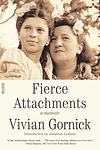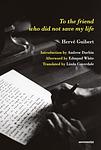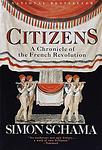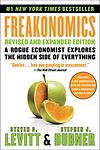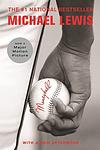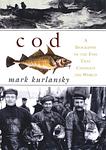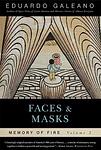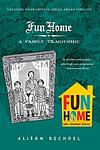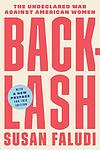The Greatest "Nonfiction" Books Since 1980
Click to learn how this list is calculated.
This list represents a comprehensive and trusted collection of the greatest books. Developed through a specialized algorithm, it brings together 284 'best of' book lists to form a definitive guide to the world's most acclaimed books. For those interested in how these books are chosen, additional details can be found on the rankings page.
Genres
Countries
Date Range
Reading Statistics
Click the button below to see how many of these books you've read!
Download
If you're interested in downloading this list as a CSV file for use in a spreadsheet application, you can easily do so by clicking the button below. Please note that to ensure a manageable file size and faster download, the CSV will include details for only the first 500 books.
Download-
76. Fierce Attachments by Vivian Gornick
"Fierce Attachments" is a memoir that delves into the complex relationship between a daughter and her mother, set against the backdrop of the Bronx in the mid-20th century. The narrative weaves together the past and present, exploring themes of identity, feminism, and family dynamics. Through a series of vignettes, the author reflects on her experiences growing up in a Jewish working-class neighborhood, her struggles with her strong-willed mother, and the impact of these relationships on her development as a woman and a writer. The book is a candid and introspective examination of the ties that bind, the forces that shape us, and the ongoing quest for self-understanding.
-
77. To The Friend Who Did Not Save My Life by Hervé Guibert
The book is a candid and harrowing autobiographical novel that chronicles the life of a man grappling with the devastating impact of AIDS during the early years of the epidemic. Through a blend of fact and fiction, the narrative delves into the protagonist's personal experiences with illness, the medical establishment, and the emotional complexities of friendship and mortality. As he confronts his own declining health, the protagonist reflects on the relationships with those around him, including a close friend who is also facing the disease, and the betrayal he feels when a promised miracle cure fails to materialize. The novel is a raw and poignant exploration of the human condition in the face of an unforgiving illness.
-
78. In the Heart of the Sea by Nathaniel Philbrick
This historical narrative tells the true story of the 19th-century whaleship Essex, which was rammed and sunk by a sperm whale in the South Pacific. Stranded thousands of miles from land, the crew of the Essex was pushed to their limits and forced to do the unthinkable to stay alive. The tale explores the harrowing ordeal of these men through their long journey at sea, their encounters with nature's fury, hunger, disease, and their own fear and despair.
-
79. The Perfect Storm by Sebastian Junger
This non-fiction book narrates the story of the Andrea Gail, a commercial fishing vessel that was lost at sea during the "Perfect Storm" of 1991. The author combines meteorological science, history, and personal accounts to paint a vivid picture of the harrowing ordeal faced by these six fishermen. The book also explores the dangerous profession of deep-sea fishing and the tight-knit communities that are affected by such tragedies.
-
80. Thinking, Fast and Slow by Daniel Kahneman
The book delves into the two systems that drive the way we think—System 1, which is fast and intuitive, and System 2, which is slow and deliberate. The author, a Nobel laureate, explores how these systems shape our judgments and decision-making. He presents several groundbreaking experiments that have shaped our understanding of human thought, revealing where we can trust our intuitions and how we can tap into the benefits of slow thinking. The book also discusses how our cognitive biases often lead to errors in judgment and affect our decision-making processes.
-
81. All Over But The Shoutin' by Rick Bragg
The memoir is a heartfelt tribute to the author's mother who struggled to raise her three sons in dire poverty in the deep south. The author recounts his journey from a poor, white, uneducated family in Alabama to winning a Pulitzer Prize as a national correspondent. It is a story of love, loss, and redemption, showcasing the enduring strength and resilience of a mother's love amidst hardship and adversity.
-
82. Chaos by James Gleick
This book delves into the complex world of chaos theory, a branch of mathematics that studies the behavior of dynamic systems highly sensitive to initial conditions, often referred to as the butterfly effect. Through engaging storytelling, the narrative explores the pioneering work of scientists who uncovered patterns in what seemed to be randomness, from weather systems to population growth. It charts the evolution of chaos theory from a scientific curiosity to a field that has profound implications across disciplines, offering insights into the inherent unpredictability of nature and the universe. The book makes a compelling case for the beauty and universality of chaos, transforming how we understand the interconnectedness of the world around us.
-
83. Schindler's Ark by Thomas Keneally
The book is a historical novel based on the true story of a German industrialist who becomes an unlikely humanitarian amid the barbaric Nazi reign. When he witnesses the horrors inflicted upon the Jews, he is moved to save as many as he can by employing them in his factory. His actions, driven by courage and compassion, lead to the salvation of over a thousand Jewish workers from certain death in the Holocaust. The narrative explores themes of morality, survival, and the capacity for good in the face of overwhelming evil, as the protagonist navigates the complexities of war and the human spirit.
-
84. Citizens by Simon Schama
"Citizens" is a detailed and comprehensive exploration of the French Revolution, offering a fresh perspective on the historical event. The book examines the revolution from its earliest beginnings to its aftermath, delving into the causes, key figures, and the immediate and long-term consequences. It provides a vivid and engaging account, highlighting that the revolution was not just a period of bloodshed and turmoil, but also a time of radical political and social change that shaped the course of modern history.
-
85. The Liars' Club by Mary Karr
The memoir is a gritty, often hilarious look at a childhood in a dysfunctional family in a small Texas town. The narrative follows the author's experiences growing up in the 1960s in a family rife with alcoholism, mental illness, and violence. It is a story of resilience and survival, as the author navigates her chaotic home life, the sexual abuse she suffered, and her mother's mental instability, eventually finding solace in literature and writing. Despite the harsh realities it depicts, the book is filled with humor and love, offering a poignant exploration of the bonds of family and the power of storytelling.
-
86. Freakonomics by Steven D. Levitt, Stephen J. Dubner
This book explores the hidden side of everything, debunking conventional wisdom and revealing surprising connections between seemingly unrelated things. It uses economic theories to explain social phenomena such as the decrease in crime rates in the 1990s, the impact of a person's name on their life outcomes, and the inner workings of drug gangs. By using data and statistics, it challenges the way people think about the world and encourages them to question the accepted truths in society.
-
87. The End of History and the Last Man by Francis Fukuyama
This book presents a provocative exploration of the evolution of political systems and the role of liberal democracy in the global landscape. The author argues that the progression of history, as defined by the development of political and economic systems, has culminated in liberal democracy and free-market capitalism. This, he suggests, may represent the endpoint of mankind's ideological evolution and the 'end of history'. The book also discusses the concept of 'the last man' as a potential consequence of this endpoint, exploring the existential threat of a society of 'last men' devoid of ideological struggle and dominated by materialistic gratification.
-
88. Free to Choose: A Personal Statement by Milton Friedman, Rose Friedman
This book is an influential work promoting the principles of economic and political freedom. The authors argue that individual freedom is directly linked to economic freedom, and they advocate for less government intervention in the economy. They explore topics like inflation, education, and consumer protection, and propose free-market solutions. The authors also provide historical examples to support their arguments and warn against the dangers of socialism and excessive government control.
-
89. The Solace of Open Spaces by Gretel Ehrlich
This book is a collection of essays that explore the author's experiences and observations after moving from the city to the rural landscapes of Wyoming. The narrative delves into the harsh and beautiful realities of living in the American West, the author's personal healing after a tragic loss, and the solace found in the vast open spaces. The book is a profound meditation on nature, solitude, grief, resilience, and the transformative power of landscape.
-
90. Moneyball by Michael M. Lewis
This book tells the story of a baseball team manager who uses statistical analysis to assemble a competitive team on a tight budget. Despite facing criticism and skepticism, his unconventional methods prove successful, challenging traditional ideas about the value of players and the nature of the game. The book highlights the importance of data-driven decision making in sports, and its potential to disrupt established norms and practices.
-
91. Rising Tide by John Barry
"Rising Tide" is a historical account that explores the impact of the Great Mississippi Flood of 1927 on American society. The narrative details the catastrophic event and the subsequent political and social changes that occurred, including the shift in African American voting patterns from the Republican to the Democratic party. The book also delves into the engineering efforts to control the Mississippi River and the environmental consequences of such efforts.
-
92. Cod: A Biography of the Fish that Changed the World by Mark Kurlansky
This book is a fascinating exploration of the historical, cultural, economic, and ecological impact of the codfish. It traces the role of this fish in shaping economies, sparking wars, and influencing culinary trends across centuries and continents. The book also delves into the devastating effects of overfishing and the current struggle to sustain cod populations. The narrative combines history, science, and gastronomy to present a comprehensive biography of this significant fish species.
-
93. Between the World and Me by Ta-Nehisi Coates
The book is a profound work that explores the concept of race in America through the lens of the author's personal experiences. It is written as a letter to the author's teenage son, offering him a stark portrayal of his place in a society that is marked by racial injustice. The narrative provides a deeply personal analysis of American history and its lasting impact on the African American community, with the author sharing his experiences of fear, violence, and struggle. It is an exploration of the physical and psychological impacts of being black in the United States, and a call for a deeper understanding of the nation's racial history.
-
94. The Bookseller of Kabul by Asne Seierstad
This book provides an intimate and eye-opening look into the everyday life of an Afghan family. The narrative follows a bookseller in Kabul, who despite the oppressive Taliban regime, courageously continues his trade. The story delves into his family dynamics, the struggles of his two wives, his children's lives, and the societal norms and customs they navigate. It paints a vivid picture of life in Afghanistan, exploring the themes of love, courage, resilience, and the power of literature.
-
95. Diaries by Alan Clark
"Diaries" is a candid and often controversial collection of journal entries by a prominent British politician and historian. The book offers a unique insider's perspective on the UK's political landscape from the 1970s to the late 1990s. It is filled with the author's personal observations, experiences, and interactions with key political figures, providing readers with a rare glimpse into the inner workings of British politics. The author's sharp wit, colorful language, and unabashed honesty make this book a compelling read.
-
96. Popol Vuh: The Mayan Book of the Dawn of Life by Dennis Tedlock
This book provides a comprehensive English translation of the Popol Vuh, the ancient Mayan creation myth. The narrative covers the genesis of the world, the adventures of the Hero Twins, the creation of humans, and the establishment of the Mayan civilization. The book also includes extensive commentary and notes, providing readers with a deeper understanding of the cultural and historical context of the Mayan myth.
-
97. Wittgenstein's Nephew by Thomas Bernhard
"Wittgenstein's Nephew" is a semi-autobiographical novel that explores the friendship between the narrator and his friend Paul, who is the nephew of the famous philosopher Ludwig Wittgenstein. The story takes place in Vienna and is set against the backdrop of the Austrian mental health system. The novel delves into themes of sanity, insanity, and the fine line that separates the two, while also offering a critique of Austrian society. It is a meditation on the nature of illness, both physical and mental, and the impact it has on personal relationships and one's perception of the world.
-
98. The Memory of Fire Trilogy by Eduardo Galeano
"The Memory of Fire Trilogy" is a historical narrative that explores the history of the Americas from pre-Columbian times to the present day. It provides an alternative perspective on the continent's history, focusing on the struggles and triumphs of indigenous people, slaves, and the poor. The trilogy is a blend of mythology, personal anecdotes, and historical facts, providing a unique and critical view of American history.
-
99. Fun Home: A Family Tragicomic by Alison Bechdel
The graphic memoir revolves around the author's childhood and youth in rural Pennsylvania, United States, in the backdrop of a dysfunctional family. The story particularly focuses on her complex relationship with her closeted gay father, who was an English teacher, a funeral home director, and a historic home restorer. The narrative is non-linear, exploring themes of sexuality, gender roles, suicide, emotional abuse, and the role of literature in understanding oneself and one's family.
-
100. Backlash by Susan Faludi
"Backlash" is a critical examination of the societal, political, and cultural forces that aim to undermine the progress of women's rights in the late 20th century. The author presents a detailed analysis of the backlash against feminism, arguing that media, advertising, Hollywood, and the conservative political movement have all played a role in promoting regressive stereotypes about women and limiting their opportunities. The author also explores the negative impacts of this backlash on women's economic status, reproductive rights, and overall wellbeing.
Reading Statistics
Click the button below to see how many of these books you've read!
Download
If you're interested in downloading this list as a CSV file for use in a spreadsheet application, you can easily do so by clicking the button below. Please note that to ensure a manageable file size and faster download, the CSV will include details for only the first 500 books.
Download